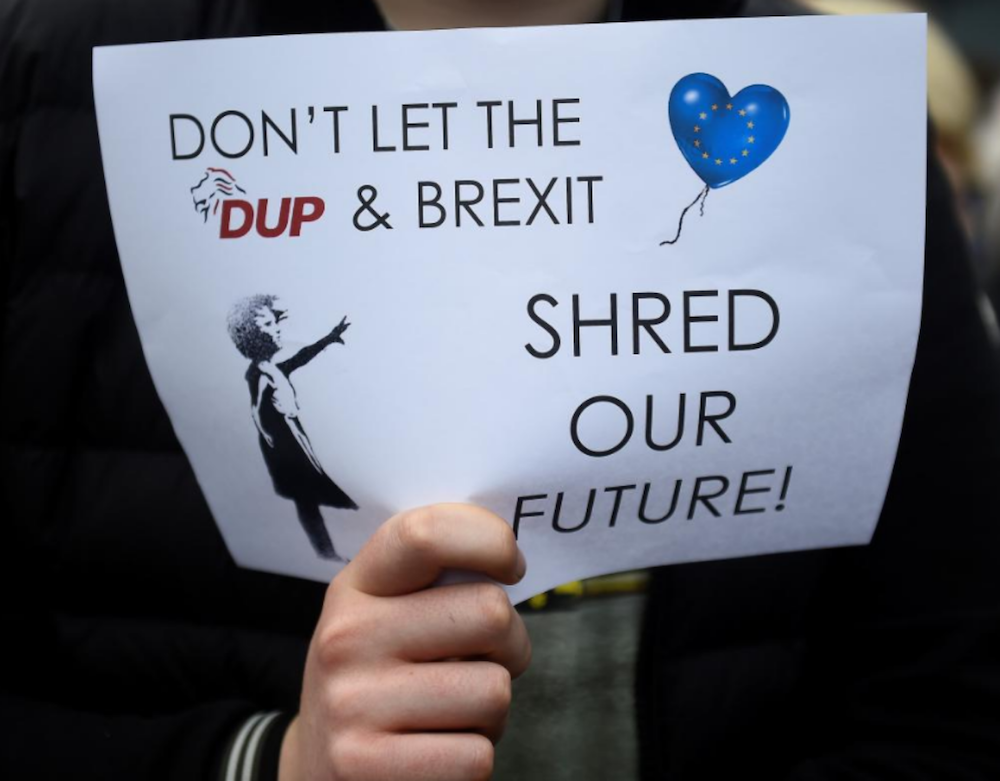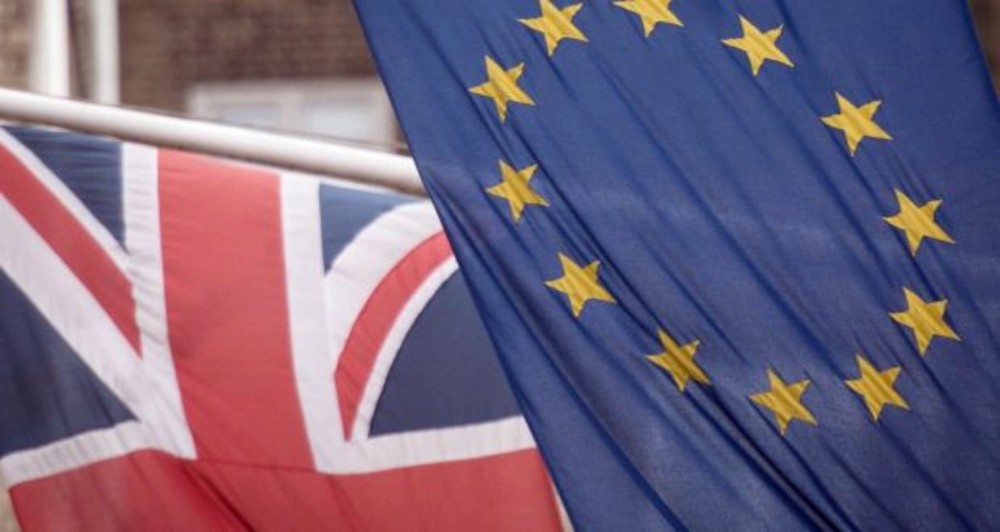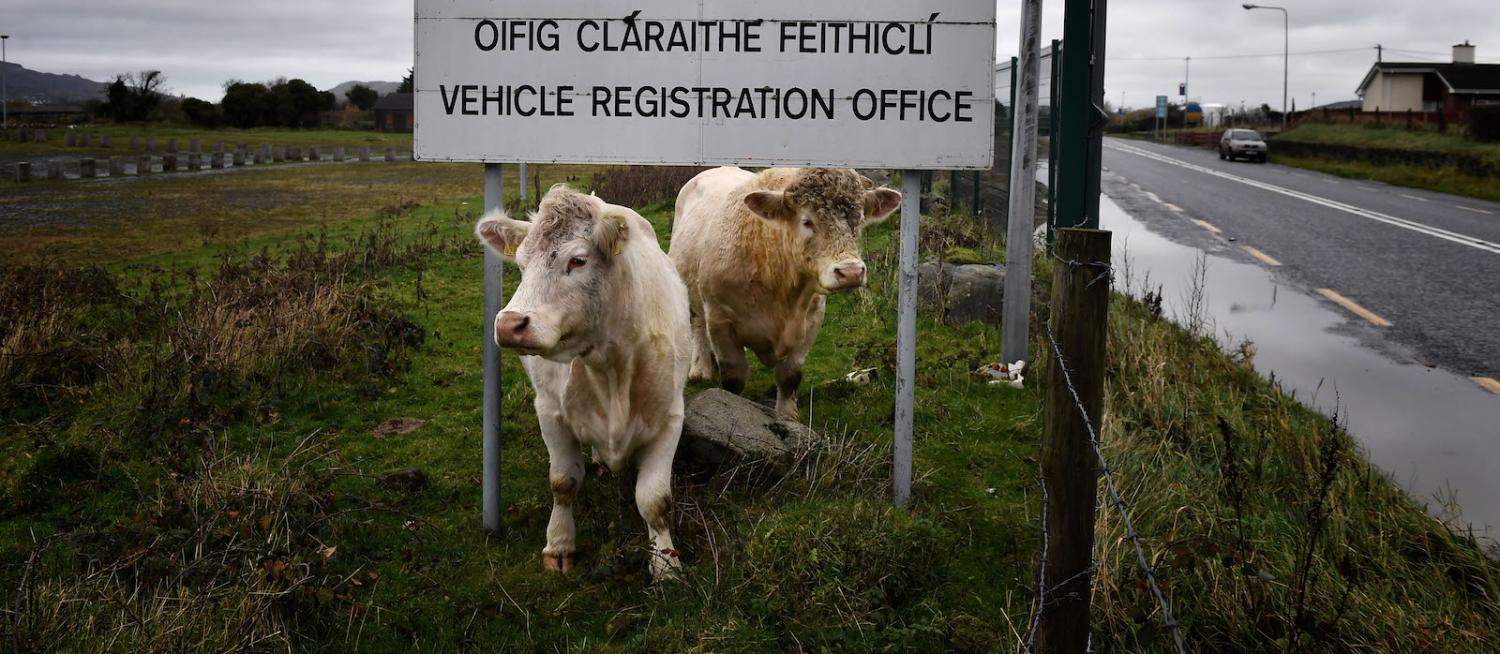Seamus Heaney, the late Irish poet and playwright, once (half-) joked that “anyone born and bred in Northern Ireland can’t be too optimistic”.
Optimism in Northern Ireland is certainly in short supply.
British Prime Minister Theresa May has presented a draft agreement with the European Union that will keep the border open between Northern Ireland and the Republic of Ireland after Brexit, but it is unlikely to get through Parliament. She has faced high-profile resignations and threats to her leadership as a result.
But Northern Ireland may yet find an unlikely source of optimism in Sinn Fein, the Irish republican party, which has an electoral presence on both sides of the border.
Brexit and Northern Ireland
The border is not just a Brexit issue. The 1998 Good Friday Agreement, which ended decades of sectarian violence known as “the Troubles”, depends partly on the promise of an open border.
Northern Ireland may yet find an unlikely source of optimism in Sinn Fein.
Northern Ireland has the most to lose if some form of the draft deal is not passed in December because it depends heavily on cross-border trade. A return to passport controls and security checkpoints will significantly increase costs for businesses on both sides. Closed borders could also undermine the legitimacy of a peace that has held for two decades.
The present draft agreement is a painful compromise. The UK would remain aligned with many of the single market’s rules in order to keep the Irish border open, but would also introduce regulatory checks between Northern Ireland and the rest of the UK, making it unable to sign new trade agreements. Theresa May’s Conservative Party will likely reject what they view as a surrender to the long arm of Brussels, and Northern Ireland's Democratic Unionist Party (DUP) – which provides the Conservatives with the support they need to stay in power – will not accept one set of rules for Belfast and another for the rest of the UK.
A deal designed to bridge divides on both sides of the Irish Sea, therefore, already looks dead in the water.

Sinn Fein: one party, two parliaments
Sinn Fein is the largest political party in Northern Ireland and campaigned for the UK to “Remain” in the EU in 2016. But the party, despite campaigning in (and winning) elections, makes a point of never taking its seats in parliament, refusing to swear allegiance as MPs to the British monarchy. But Sinn Fein should end this policy of abstention from Westminster and take its seats in Parliament to work on behalf of the 55.8% of voters in Northern Ireland who voted Remain.
There are several compelling reasons for this.
Firstly, there is little practical alternative. The Northern Ireland Assembly – the Belfast legislative body in which Sinn Fein held twenty-seven seats – was suspended in 2017. The party already takes its seats at Dáil Éireann in Dublin where it has limited influence over negotiations that are ultimately run from Brussels. Parliament is the only forum where Sinn Fein can form a counterweight to the DUP and the Conservative Party, both of which may vote to scupper the draft.
Secondly, Sinn Fein has a controversial past as the political wing of the Provisional IRA, but it is not the party it used to be. Its leaders in Belfast and Dublin, Michelle O'Neill and Mary Lou McDonald respectively, are “clean skins”; adopted as an Irish term for politicians unconnected to and unburdened by the legacy of paramilitary activity or lengthy imprisonment that defined the old guard.
Trends suggest that Sinn Fein can reach new voters in Northern Ireland. Particularly young people who have only ever known a peaceful Ireland with a place in Europe. Sinn Fein has gained a steadily increasing number of votes in UK general elections since 1998 despite their abstention. Contrast this with the DUP experience – which lost 10 seats at the 2017 Northern Ireland Assembly elections –that could be interpreted as voters punishing the party for its campaign to Leave.
Finally, returning to Parliament may serve a greater goal for Sinn Fein and simplify Brexit for those who voted Leave. The UK is required by the Good Friday Agreement to call for a referendum known as the border poll in both Northern Ireland and the Republic of Ireland if a majority of voters in Northern Ireland show support for Irish reunification. By taking its seats, Sinn Fein could help shape a new draft agreement that buys time for voters in Northern Ireland to carefully consider their future, assuming the current draft is scrapped.
“We ourselves”
Heaney, in addition to writing poetry and plays, was also a translator of the Irish language. Heaney may well have agreed with Christopher Hitchens, the late Anglo-American essayist and polemicist, when he lamented the mistranslation of the Irish phrase sinn féin as “ourselves alone”, rather than the more accurate “we ourselves”.
Voters in Northern Ireland must decide if Sinn Fein can help draft the agreement it needs, or if it will stand alone with the agreement they’ve been given.


